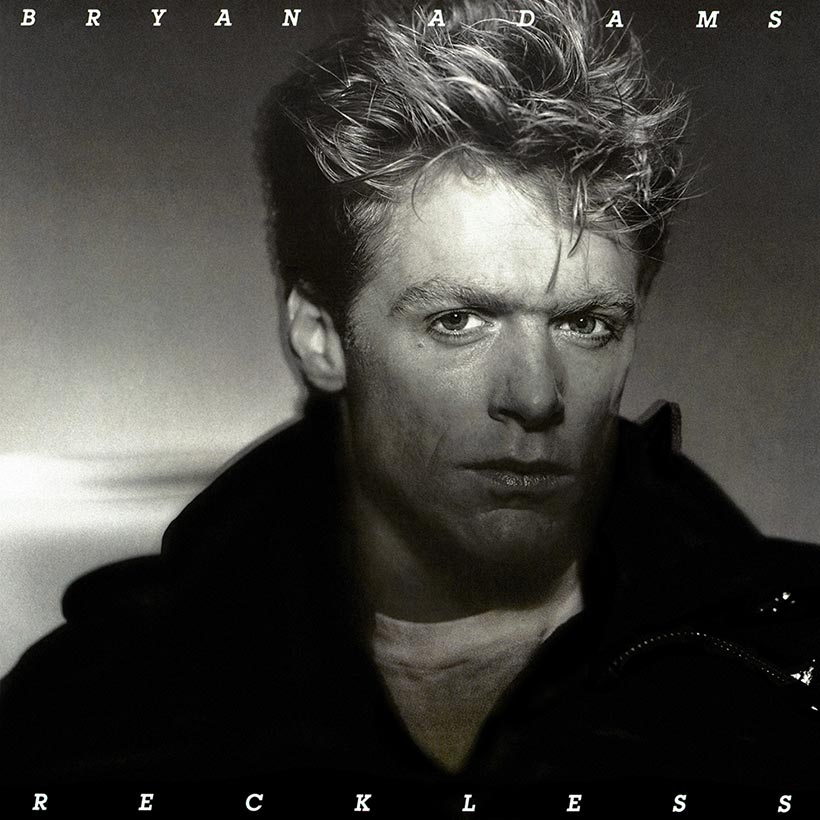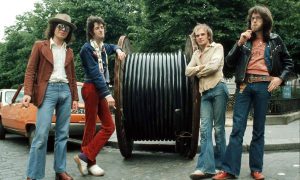When Bryan Adams turned 25, on November 5, 1984, the Canadian singer-songwriter already had three albums under his belt and delivered what was about to become his career-defining fourth, Reckless. The multi-platinum smash mixed Adams’ working-class ethos with his Springsteen-style knack for storytelling and a huge sound destined for stadiums; listeners locked onto this everyman-type singing about break-ups and summertime memories of a bygone era in his earnest, raspy-rock vocals.
Listen to Bryan Adams’ Reckless now.
Chasing a bigger sound
After his sophomore album, 1981’s You Want It You Got It, didn’t take off, Adams joked that his third should have been titled Bryan Adams Hasn’t Heard Of You Either. Released as 1983’s Cuts Like A Knife it sold a million copies in the US alone.
Living in the space between success and fame, Adams returned to his hometown of Vancouver, Canada, and entered Little Mountain Sound Studios with longtime producer and collaborator Bob Clearmountain. After laying down nine tracks, it was clear the studio wasn’t equipped to handle the bigger sound Adams and Clearmountain were chasing. The Reckless sessions then relocated to New York City’s famed Hell’s Kitchen studio, Power Station, a creative incubator since the mid-70s to such artists as Bob Dylan, Bruce Springsteen, Madonna, and David Bowie.
At the time, Clearmountain was happy with the way Reckless was heading. The songs they’d captured included the ballad “Heaven,” recorded in 1983 as the theme to the movie A Night In Heaven, “One Night Love Affair” and “Run To You,” a track that had been originally been rejected Blue Öyster Cult and which would become one of Adams’ biggest hits.
“Where’s the rock?”
Adams, on the other hand, felt something was still missing from Reckless and invited manager Bruce Allen to New York for a listen, after which Allen simply asked: “Where’s the rock?”
The next day, Adams flew back to Vancouver. He called Jim Vallance, his co-songwriter, to add some heat to “One Night Love Affair” and “Summer Of ’69.” A new song also emerged: “Kids Wanna Rock,” Adam’s rejoinder to Allen’s question.
Inspired by Bob Seger’s “Night Moves,” Vallance plumbed his own adolescence – first loves, first bands and the music of the time – for the timeless summer anthem “Summer Of ’69.” The song exploded in America, raising Adams’ profile stateside, and has only grown in popularity throughout the years.
Radio gold
Wanting to create a record imbued with the energy of a live performance, Adams re-recorded those three songs using Pat Steward, a drummer in a ska band called Rubber Biscuit, whom Adams had discovered by chance playing in a club one night.
The album may have been called Reckless, but it was radio gold, spawning a string of Top 15 singles starting with “Run To You” (No. 6) and continuing through with “Somebody” (No. 11), “Heaven” (No. 1), “Summer Of ’69” (No. 5), “One Night Love Affair” (No. 13) and a duet with Tina Turner, “It’s Only Love” (No. 15), which nabbed Adams a Grammy nomination for Best Rock Vocal Performance By A Duo Or Group. The only other artists to achieve this kind of chart domination was Michael Jackson, with Thriller, and Bruce Springsteen, with Born In The USA.
But Reckless is more than just a hits collection. Adams pairs his melodic craft with power chords on the opening track, “One Night Love Affair,” and the rocker “Somebody.” Even the album’s big single, “Run To You,” opens with dark, moody riffs; its promo video, which found Adams clad in his distinctive leather jacket, got serious airplay on MTV.
Bringing back rock’n’roll
At a time when synth-pop ruled the roost, Reckless helped bring guitar-based rock’n’roll back to the US charts, alongside releases by Adams’ fellow working-class heroes, Bruce Springsteen, John Mellencamp, and ZZ Top.
In June 1985, “Heaven” hit No.1 on the Billboard Hot 100; Adams was in the middle of a worldwide tour that had kicked off in December 1984 and lasted until October 1986, and which saw him join Tina Turner during the European leg of her tour in 1985, helping to fuel Reckless’ popularity overseas.
Bryan Adams may not have invented arena rock, but he certainly perfected it on Reckless.




